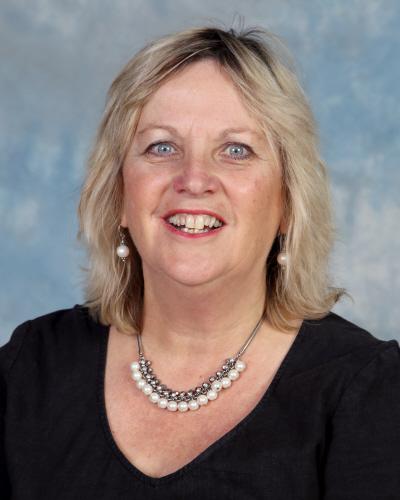Assistant Principal's Message

Maramba Vision
Providing a caring environment where aspirations are nurtured, positive relationships grow, success is celebrated and a passion for lifelong learning is ignited.
Nurture. Innovate. Celebrate.
Dear Students, Parents, Carers and Families,
Maramba students as Learners
It is hard to believe that we have just entered the seventh week of Term One. Our students have settled into their new classes, our Foundation students are attending school full time, and the important business of learning is as always at the forefront of our minds. We always commence the year by sharpening our focus on the values of our school, and as I make my way around the classrooms it is very clear that students are increasingly more confident as co-contributors when establishing expectations for their learning environment. Hearing children articulate their understanding of how they learn best, is magic to my ears.
Connection is important for everyone
It is wonderful to see the level of engagement and connectedness across the school, students are now well and truly settled and making great progress academically, physically, socially and emotionally. When parents and teachers work well together, everyone benefits. Parents and teachers can provide each other with unique insight and different perspectives about the same child, culminating in a more complete understanding of that child, their abilities, strengths, and challenges. The teacher will know much more about the curriculum and the school culture, while you know more about your child's personality, tendencies, and family life. A successful parent-teacher partnership also shows a child that an entire team of adults is on their side. It takes a village to raise a child, I would like to encourage families to reach out wider than just your child’s teacher, please as you see staff members in the yard before or after school, say hello and introduce yourself. Staff get to know your children well in classes, specialist sessions, while on yard duty and also on special event days as it would be lovely to get to know you too.
Supporting ourselves and others.
From time to time we may find ourselves or others around us in need of supports.
Below are some important numbers to keep accessible:
Kids Helpline
1800 551 800
Child First
1300 762 125
Parentline
13 12 89
Lifeline
131114
Food Security
Beyondblue
1300 224 636
Drug and Alcohol Support
1800 888 236
Celebrating mistakes as opportunities for growth
Our teachers’ model and develop a growth mindset in students. Part of that is being willing to try hard, even when failure is likely, because that is how learning happens. This is normalised in sport. Athletes try, try and try again- no team or individual always wins. We aim to normalise it in the classroom. We are excited by mistakes because they can reveal important conceptual gaps that should be filled. You may be interested to know that when we administer some standardised tests we carefully choose the test level, and the right test for a student is the one in which they score around 70%. Why is this? We are just as interested in what they do not know as we are in what they do know!
When adults get excited about the learning that mistakes can facilitate, children start to think of mistakes as a natural part of the learning process and this results in two important changes in learning behaviour. Children engage in challenging work (which may mean making some mistakes) and are less likely to hide their mistakes and feel ashamed.
Here are some tips for you to help build a growth mindset in your children at home:
- Talk about when you were a child and you struggled with something that was hard and overcame it. Allow your children to reflect on struggles and what they learn from them.
- Make mistakes in front of your children and have a positive reaction to them. Openly reflect on what could be learnt from them. This shows it is about the learning and not being right.
- Get excited when your child makes a mistake and help them to think through what can be learned from it. Even mistakes that seem careless can be good learning opportunities.
Kind regards,
Diane Morwood
Assistant Principal

